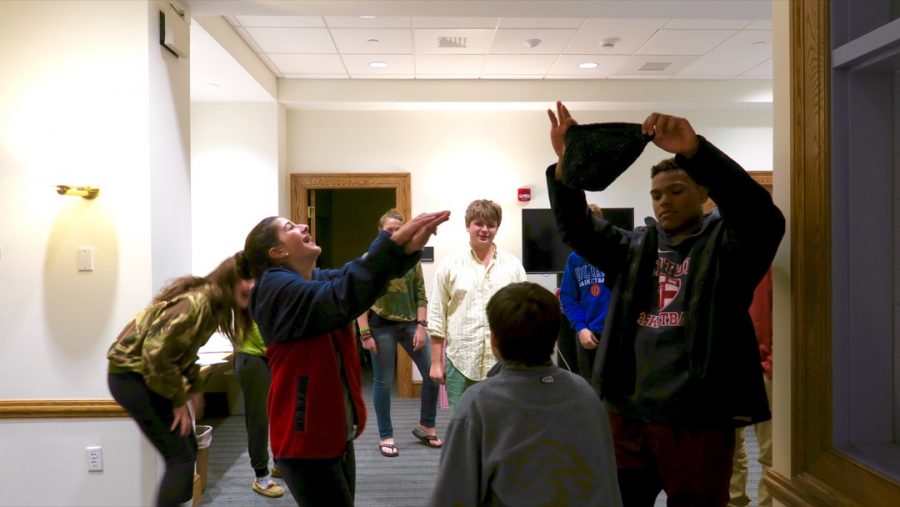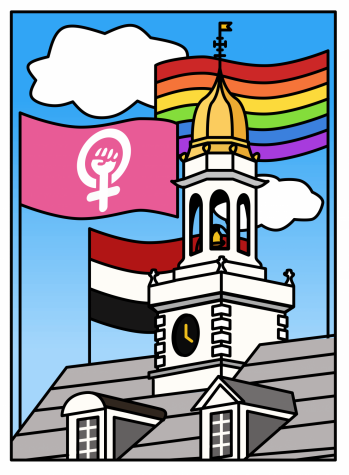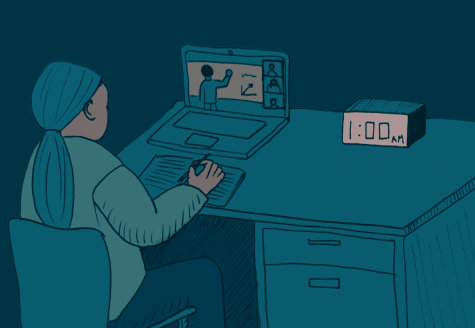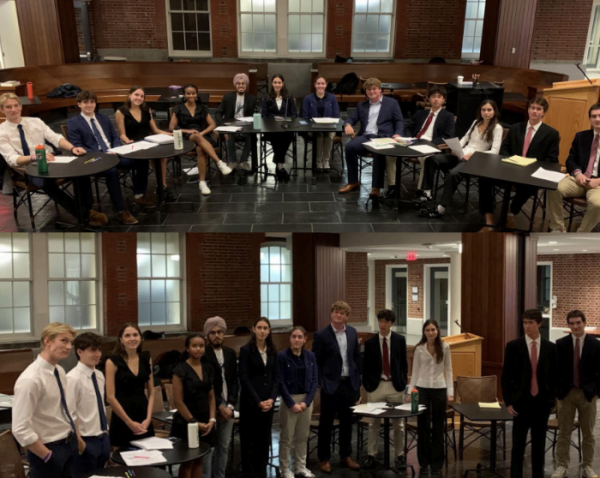The Wellness System, revisited
As winter term arrives, the impending lack of sunlight, warmth, and visible grass can send students into a funk. But, luckily for them, the Counseling and Wellness Office provides a variety of supports, the most notable being the peer counseling program. This school year, many changes were implemented in this program, including its involvement in the Lower School co-curricular program, which went through changes of its own. So, were these headlining changes successful or underwhelming?
The new Counseling and Wellness coalition’s goal, as Dr. Fritz-Ellis explained for a previous article on the topic, is “to create a system that promotes student wellbeing on both the proactive and reactive level.” The first change was a decrease in the number of peer counselors, but an expansion of the eligibility for this role to Fifth Formers.
Additional changes were made in the roles these peer counselors play on campus. They not only provide advising to peers who seek them out, but also lead group discussions in Lower School co-curricular, which now is called Wellness. Their role will increase even more in the new year, when they will be available in the brand-new Wellness Center, above the Health Center, for peer counseling “office hours,” as Dr. Fritz-Ellis explained.
When news first broke out about the addition of Fifth Form peer counselors, there was much skepticism buzzing around the school on how this might topple Groton’s student hierarchy that places Sixth Formers as authority figures in dorms and on campus. Fifth Form peer counselor Becky Zhang believes that it hasn’t: “I think that Lower Schoolers still think seniors are at the top.” Sixth Form peer counselor Anson Jones highlighted the benefits of having Fifth Formers in the group, saying, “I think next year it will be nice that the Sixth Form already has a year of experience under their belts.” Dr. Fritz-Ellis also noted “Having the Fifth Form makes a nice mentoring role. They’re meeting all these Second and Third Formers now who they are going to be here with again next year.”
The response from Second and Third Formers to these authority figures has also been very positive. The new Lower School Wellness programs—Second Form L.IN.C, or Living In a Community, and Third Form C.C.B., or Character and Community Building—are introductory platforms for peer counselor interaction with younger students. Alternating weeks, each form goes to the Wellness Center on Tuesday afternoons before study hall.
Sixth Form peer counselor Matthew Higgins-Iati described the course of events: “You have either Dr. Fritz-Ellis or Ms. Cheeks talking about the substance of the issue, the stuff you really want someone who is trained to talk about. And then [the peer counselors] are there to lead discussion groups, to be a student resource.” These student led discussions are unanimously the Lower Schoolers’ favorite part of the program. “I liked it a lot. It was helpful to meet older people that you know you can talk to,” said Annie Fey ‘20. Rowan Reilly ‘20 extended those sentiments, saying, “It’s nice to talk to people who have gone through the school experiencing the same things we will.”
These student discussions are balanced out by faculty introductions and guidance. “It’s nice to get two different perspectives on the topic,” said Lily Kempczinski ‘21. Elizabeth Girian ‘20 praised Ms. Cheek’s work in this role saying she “is really good; she’s honest.” Kayla Popkin ‘20 agreed, complementing Ms. Cheeks on her willingness to push boundaries and not filter. Along with the guidance of faculty and peer counselors, the change in topic matter impressed Third Formers from last year’s Second Form. “I like it more, we talk about how to deal with stuff that’s very relevant,” remarked Marc Borghi ‘20.
This isn’t to say that the program is flawless. Some Lower Schoolers do express concerns with Wellness. One primary concern is of discussion groups staying constant, the same group of form members meeting with the same two peer counselors each session. Marc Borghi, expressed this conflict saying, “You actually get to know [the peer counselors in your group], but you also don’t get to hear other perspectives”. Ms. Cheeks explained however that this decision to keep groups regular was to form bonds and trust between group members and leaders. A second concern was on the repetition of topics, “It’s good that we have [Wellness], but at a certain point we just go over the same stuff,” remarked Kayla Popkin. Dr. Fritz-Ellis acknowledged this frustration, but highlighted the different background all students are coming from and the necessity to set the playing field even for all form members on such prevalent topics. “Everybody comes here with some type of health-ed class and we don’t want to do the same thing over. The goal is to figure out what do all those things mean in context of being at Groton as a Groton student.”
The final worries came from the peer counselors on their training and their impressions on campus. Fifth Form peer counselor Josie Fulton explained her concern, saying, “Fifth Formers have a lot of work and may not be able to be as strong a presence as would be hoped for a peer counselor.” Jay Montima ‘18 paralleled this concern that as a Fifth Form peer counselor, or a counselor not in a Lower School dorm, you might not be thought of as a resource by younger students.
Dr. Fritz-Ellis believes that once the “office hours” in the Wellness Center start, this problem will diminish. “There is going to be the ability for students to sign up and meet one on one. Once [Lower Schoolers] have access to people outside their dorm, they might opt to seek out other peer counselors.”
The last concern was one on minimal training, something Ms. Cheeks and Dr. Fritz-Ellis have already planned to fix. “Starting this year the new peer counselors will get their training in the spring on how to run a group and all the major mental health problems. That way when we come back next year, they’re ready to start with last year’s Fifth Form peer counselors,” described Dr. Fritz-Ellis.
Regardless of concerns and bumps in the road, the Wellness program has been successful in making co-curricular a more effective and enjoyable activity in students’ eyes and peer counselors more available to younger students. As Ms. Cheeks said, “It should keep evolving based on the students’ needs, the peer counselors’ abilities, and the student culture as a whole. I never want it to stop evolving.”
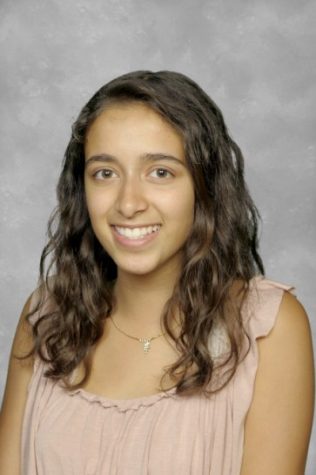
Lily Cratsley '19 is very excited to step into the role of Editor-in-Chief of the Circle Voice. Since fourth form she has been a consistent contributor, writing for...


